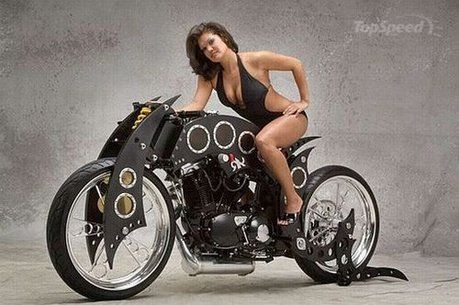By Frank Melling via : www.motorcycle-usa.com
When I rode the factory Paris-Dakar Desert racer I was very much on BMW's Christmas card list, since very few journalists got to ride the works bikes. This was not surprising because there were only three built for the 1981 season. The bike I rode was well and truly trashed - as in terminally dead. It had been hammered round Africa for three weeks and when I got it the poor thing was on its last legs. Even so, I could tell that the bike must have been a formidable tool when it was fresh. It was also a great credit to the factory because the bike clearly had some bloodline linked to the GS80 road bikes, where many of the works entries in the Dakar had no connection whatsoever with the road bikes from which they were allegedly derived.

The record books show that the Munich flat twins were phenomenally successful in the hands of Hubert Auriol, Gaston Rahier and J.C. Morellet - better known as "Fenouil". The factory had two pops at winning the Dakar in 1979 and 1980 before taking home the silverware in 1981 with Hubert Auriol in the saddle.

I'm not sure whether the bike I rode was Auriol's machine, as the factory claimed, but it was certainly one of three works bikes entered by BMW France.
The BMW race team were nice people - keen, enthusiastic motorcyclists and a million miles away from the slick suits and watchful eyes which dominated the marketing and PR departments. I enjoyed riding the bike and look back on it with very fond memories and a sense of real privilege that I was able to have a day's play with it.

Here are my memories from 26 years ago of what was a truly Memorable Motorcycle. Rather than trying to re-write history, and being smart after the event, I have left the story just as was originally written - warts and all. There's just one point of historical interest which needs clarifying. Throughout the story I refer to the ISDT - the International Six Days Trial. At the time, it was still a big deal to actually finish the event and so it still harked back to its original reliability trial antecedents.

The second thing which might seem odd are the references to BMW's wins in the 1979 and 1980 ISDT events. At the time, the ISDT was organized according to capacity bands and the 500cc plus was, de facto, restricted to big, heavy four-strokes. It was this segregation of the bikes which allowed BMW to do so well...
.












No comments:
Post a Comment